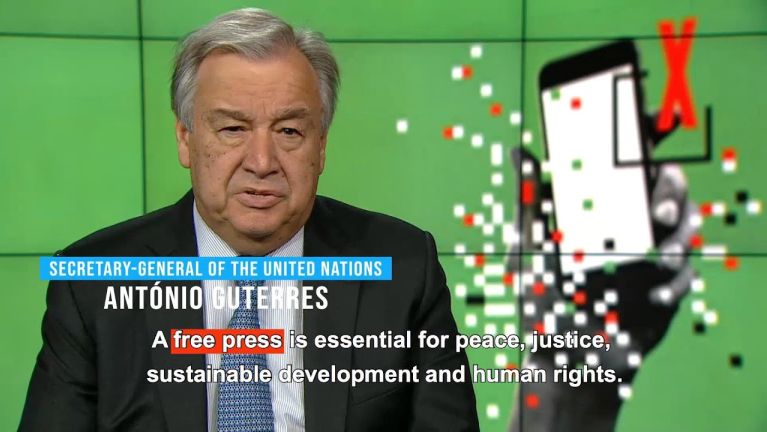The fourth estate
Free media form an important part of any democracy. However, they are denounced by populists for political reasons – in Germany, too.

Free and independent media have a central and vital role to play in a democracy. The press, radio and television provide citizens with information independently of the state and political parties, and thereby help shape public opinion. In Germany, this role is enshrined in the country’s Basic Law. However, provocative terms such as “lying press” and “fake news” are being used increasingly often in populist propaganda to denounce quality media – around the world, and also in Germany. In many cases, social media are the platform on which people post what are frequently one-sided and extreme views of facts that do not reflect their opinions.
Dieses YouTube-Video kann in einem neuen Tab abgespielt werden
YouTube öffnenThird party content
We use YouTube to embed content that may collect data about your activity. Please review the details and accept the service to see this content.
Open consent formThe media as government and political watchdog
In any democracy, the various media have a key role to play as a political watchdog. This is why the level of freedom enjoyed by the press is often seen as an indicator of how democratic a state is. There is even a tradition in Anglo-Saxon and French-speaking countries to use the term “fourth estate” in a state based on the rule of law, and this is also the case in Germany. This puts the free media on an equal footing with the three powers of government – the executive, the judiciary and the legislative. That said, the term is somewhat misleading because the free media are not in fact part of the separation of powers in a constitutional state, they do not exert any governmental power, and therefore their role is not equivalent to a government function.
In Germany, the freedom of the press, which is laid down in prominent position in the country’s Basic Law, guarantees uncensored reporting.
Freedom of the press and freedom of reporting by means of broadcasts and films shall be guaranteed. There shall be no censorship.
The central role of the press in supplying information to Germany’s population is underlined by the fact that journalists have a legal right to information from the state. Government institutions, be they at federal, state or municipal level, have a duty to answer the questions of the press. These include parliaments, courts, authorities and bodies such as the police.
Help with combatting fake news
Germany’s Federal Government provides detailed information about fake news and for example how fact-checking can be used to identify such news reports. Other initiatives are also committed to providing clarification, however, such as the Faktenfinder compiled by the public service broadcaster ARD and the faktencheck made available by the foundation-funded research centre correctiv, which also works for Facebook.
You would like to receive regular information about Germany? Subscribe here:
